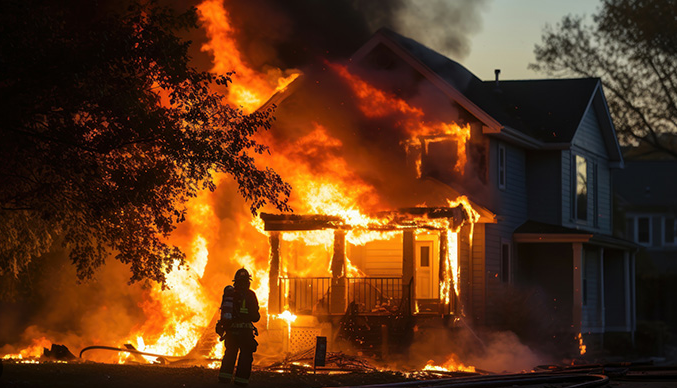Homeowners insurance claims are complicated—particularly if there is fire, flood, or mold damage. Insurance companies can delay, deny, or underpay claims, and the homeowner is left fighting to be fairly compensated. Below is everything you need to know about how to handle complicated claims and how to be fairly compensated.
1. Fire Damage Claims: What to Expect
A fire can destroy everything from personal belongings to the structure of your home. Homeowners insurance typically covers:
- Structural repairs and rebuilding costs.
- Replacement of personal property damaged by fire or smoke.
- Additional living expenses (hotel stays, meals, etc.) if you’re displaced.
Common Fire Claim Issues
Insurance companies may undervalue property losses or delay payouts.
If arson is suspected, insurers may deny the claim entirely.
What to Do:
Take photos of the damage immediately.
Ask the fire department to provide you with a copy of their report.
Obtain independent estimates of repair expenses to use as a comparison to the insurer’s offer.
2. Flood Damage: Why Insurance May Not Cover It
Flooding is among the most denied claims since standard homeowners insurance DOES NOT include flood damage. You’ll need to have an additional flood insurance policy with the NFIP or a private insurer.
What Flood Insurance Covers?
- Damage to walls, floors, and electrical systems that’s structural in nature.
- Basic household appliances such as refrigerators and water heaters.
- Personal property such as furniture and clothing (subject to policy limits).
Typical Flood Claim Problems
Insurers question the origin of water damage (e.g., rejection of a claim by labeling it as “seepage” rather than flooding).
Policies that merely cover structure and not personal property.
What to Do:
Get everything documented (photos, receipts, and inventories).
Report your claim in a hurry—flood claims need to be reported within 60 days.
Hire a public adjuster if your insurer lowballs your payout.
3. Mold Damage Claims: A Gray Area in Insurance Policies
Mold damage is one of the toughest claims to have approved because:
- Insurance policies usually exclude mold unless it was caused by a covered peril (such as a burst pipe).
- Insurers will try to dispute that the mold was caused by poor maintenance or chronic moisture problems.
When Mold is Covered
If mold is caused by a sudden water leak (like a burst pipe or storm damage), it may be covered.
If mold results from a flood, you’ll need flood insurance to file a claim.
What to Do If Your Mold Claim is Denied?
Hire a mold remediation expert to assess the damage.
Challenge the denial by proving the mold resulted from a covered event.
Consult an insurance attorney if your insurer refuses to pay.
Final Thoughts
Tackling the claims for fire, flood, or mold coverage can be overwhelming, particularly when your insurance carrier attempts to avoid or postpone the payment. Learning about your contract, maintaining excellent records, and consulting a lawyer when required should enable you to obtain the payoff you require for your home renovation.
This post was written by Kelly-Ann Jenkins of Jenkins Law P.L. Kelly-Ann is an insurance claim Lawyer. The information on this site is not intended to and does not offer legal advice, legal recommendations, or legal representation on any matter. Hiring an attorney is an important decision, which should not be based on advertising. You need to consult an attorney for legal advice regarding your situation.
The information provided on this website does not, and is not intended to, constitute legal advice; all information, content, and materials available on this site are for general informational purposes only. Information on this website may not constitute the most up-to-date legal or other information. This website contains links to other third-party websites. Such links are only for the convenience of the reader, user or browser; the ABA and its members do not recommend or endorse the contents of the third-party sites.

